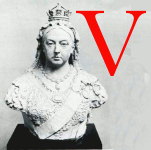
irgil was much better known than Catullus or Lucretius within the family, in the schoolroom and in the debating chamber. He was one of the first classical authors to be included in A. J. Valpy's Family Classical Library in 1830. He was fairly safe, obnoxious perhaps to radicals and aesthetes but not to shockable parents or timid schoolmasters. Unlike Lucretius he was free from the subversively attractive taint of atheism or iconoclasm; unlike Catullus he was seldom erotic and never obscene. Romantic commentators could ascribe to Lucretius and to Catullus discernment of the abysses of the heavens and of the human heart, respectively, but could find little engagement with public life in either poet. Virgil, on the other hand, wrote from and for the court of Augustus on the subject of arms and political man engaged in the bruising process of nation-building. The Eclogues and the Georgics were still read and respected — indeed the countryman R. D. Blackmore published a partial translation of the Georgics under the title The Farm and Fruit of Old (1862) — but it was the more public poetry of the Aeneid which dominated the nineteenth-century imagination. [133]
Bibliography
Vance, Norman. The Victorians and Ancient Rome. Oxford: Blackwell, 1997.
Last modified 15 January 2007